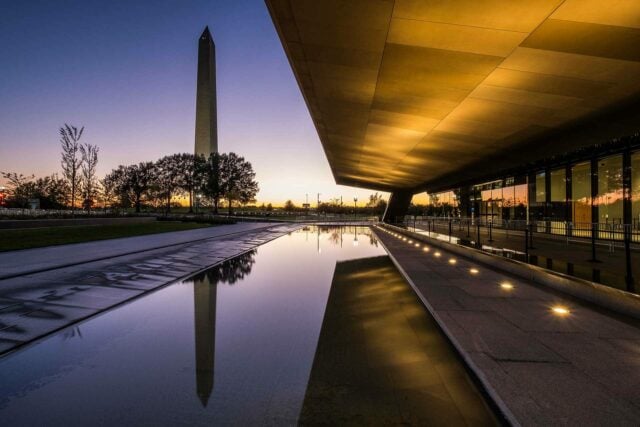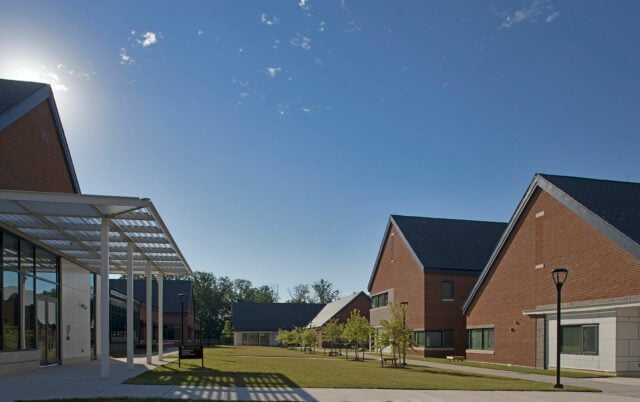As RK&K supports the mission and vision of LEED Week, they celebrate their projects that have succeeded in earning ratings from the Leadership in Energy and Environmental Design (LEED) program, the world’s most widely used green building certification program which aims to provide a framework to create healthy, highly efficient and cost-saving green buildings.
“LEED certified buildings are proven to save money, improve efficiency, lower carbon emissions and create healthier places for people. They are a critical part of addressing the climate crisis, meeting Environmental, Social, and Governance (ESG) goals, enhancing resilience, and supporting more equitable communities,” states the U.S. Green Building Council.
These benefits can be seen in action at the $300 million National Museum for African American History and Culture (NMAAHC) in Washington DC’s National Mall.
In addition to RK& providing civil/site and utility design services, the team helped earn the project a LEED Gold certification by providing technical feedback on Sustainable Sites credits, such as Construction Pollution Prevention and Stormwater Management, and Water Efficiency credits.
The NMAAHC included design LEED Scorecard sections such as an erosion sediment design in compliance with jurisdiction requirements to reduce construction pollution and waterway sedimentation, a stormwater detention vault, and a 100,900-gallon cistern to collect rain water, ground water and condensate water for reuse.

The National Museum for African American History and Culture (NMAAHC) on the National Mall in Washington, DC.
RK&K provided civil design for the Undergraduate Teaching Laboratories, a state-of-the-art lab space on the Johns Hopkins University Homewood campus in Baltimore, MD, and helped the site earn Platinum, the highest LEED certification available. The building uses 40 percent less energy than similar code-compliant lab buildings due to energy-efficient designs include highly efficient heating and cooling systems, occupancy sensors that control lights and HVAC, daylight sensors, low-flow water fixtures, and technologies designed to conserve energy and water.
Also in Maryland, RK&K helped the Maryland School for the Blind Autism-Blind Learning Activity Center and Residences achieve an LEED Silver designation. They supported the design team by evaluating the site to determine it was free of environmentally sensitive lands to reduce the impact from the selected location of the building, reducing pollution and land development impacts from automobile use, restoring and protecting the site with native or adaptive vegetation, and erecting two micro-bioretention facilities.

The Maryland School for the Blind Autism-Blind Learning Activity Center and Residences.
Learn more about our LEED-certified projects and capabilities here.
